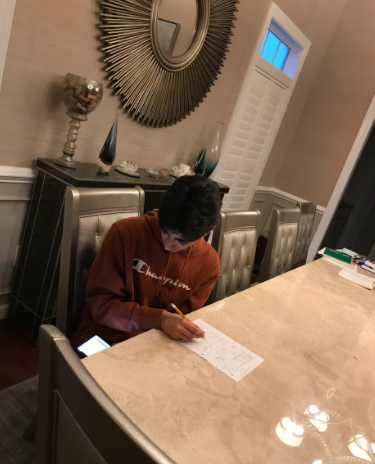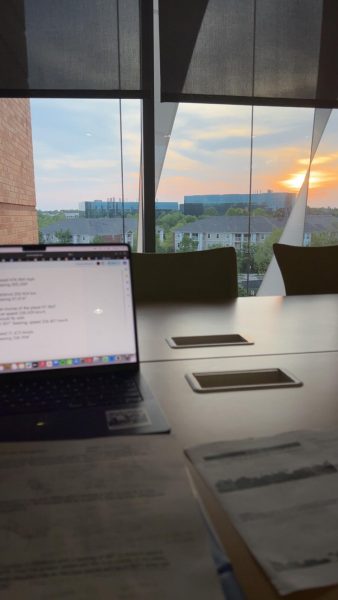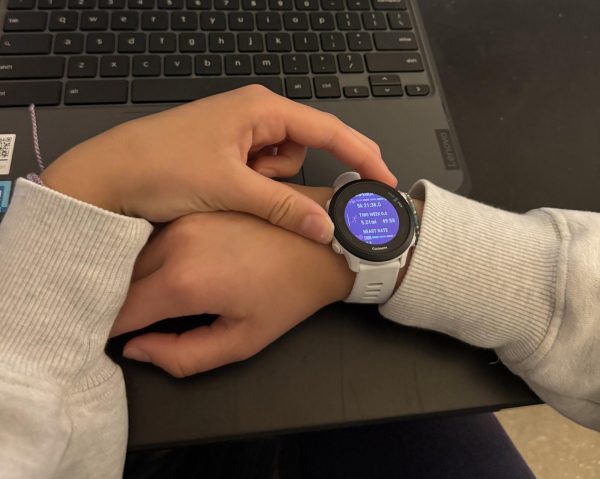Why you shouldn’t cheat

Junior Saurav Khetan demonstrates how students can easily cheat on a homework assignment.
Although sometimes in the short term it may seem acceptable to cheat, in the long run, it is never worth it. This is because of the laundry list of consequences that come with academic dishonesty. These include expulsion and academic suspension, loss of trust among peers and teachers, and bad habits further down the line.
In college, a strict plagiarism policy is put into place and can lead to expulsion and a huge financial loss because tuition dues are already spent. This makes it extremely hard to get jobs in the future so it is good to remove this habit early, before a college level. Even with a zero percent, you can retake the class eventually and the cheating is never worth it in the long run.
A good reputation can easily be ruined with an act of cheating because your given trust has been taken away and life revolves around an honor system. So, when you cheat that system you get followed more closely and aren’t given the privileges that come with having the honor system in your favor anymore.
Cheating is a big issue in MCPS and test answers are often leaked in early periods and then sent around the grade. “The only reason I passed my math class this year is that I had the answers to the test in advance because I had the class in the afternoon and one of my friends had the class in the morning,” an anonymous student said.
The current rules for academic dishonesty in MCPS revolve around a multiple offense system where the punishments get worse after each offense. After the first offense, students receive parent contact, no credit on the assignment, and possible lunch detention based on the teacher’s discretion. After the second offense, all of the above will occur and up to two possible days of detention can be enforced. After the third offense and any other subsequent offenses you can be suspended.
Students seem to understand the repercussions. Junior Spencer Becker said, “I think that cheating can prevent students from achieving their full potential because they don’t learn as much as they could. Some students might benefit from cheating in the short term but in the long run, it will greatly affect them. Students should think about getting a 50% and getting a 0% before they make the decision to cheat.”
Cheating has grown in popularity because of online school last year. Out of 30 juniors surveyed, 80% admitted to cheating at least one time while school was online. These habits often continue and lead to cheating at a more consistent rate in future years.
Your donation will support the student journalists of Thomas S. Wootton High School. Your contribution will allow us to purchase equipment and cover our annual website hosting costs.
Mason is a 2023 graduate.






